Have you ever wondered what's really in your gut health supplements? Let's talk about why organic prebiotics are much better for your tummy than cellulose fillers. It's like choosing between a yummy, nutritious snack and a plain piece of paper - your gut knows the difference! Understanding this can really help your digestive health and overall well-being.
Key Takeaways
- Organic prebiotics actively feed beneficial gut bacteria, while cellulose fillers are inert
- Prebiotics support digestive health, immune function, and nutrient absorption
- Natural sources of prebiotics include fruits, vegetables, and whole grains
- Quality prebiotic supplements like MicroBiome Restore™ offer concentrated benefits
- Choosing organic prebiotics over cellulose fillers can significantly improve gut health
What Are Prebiotics and Why Do They Matter?
Prebiotics are special types of fiber that feed the good bacteria in your gut. They're like fertilizer for your gut garden! Probiotics are the good bacteria, and prebiotics are their favorite food. When you eat prebiotics, you're helping the good bacteria grow and thrive. This relationship is super important for keeping your digestive system healthy and supporting your overall health.
Organic prebiotics come from natural sources like fruits, vegetables, and plants. They're packed with goodness that your gut bacteria love. These natural prebiotics include things like inulin, fructooligosaccharides (FOS), and resistant starch, which scientists have studied a lot for how they help gut health. On the other hand, cellulose fillers are just there to take up space. They don't feed your gut bacteria or help them grow, and don't really do anything for your digestive system.
The Problem with Cellulose Fillers
Cellulose fillers are like empty calories for your gut. They're often used in supplements to make pills bigger or hold things together. But guess what? Your body can't digest them! They just pass through without doing much good. Some studies even suggest that eating too much of these fillers might make it harder for your body to absorb the good nutrients from your food.
Imagine giving your pet a toy stuffed with cotton instead of treats. That's kind of what cellulose fillers are like for your gut bacteria - not very exciting or helpful! These fillers, often made from wood pulp or other plant parts, don't give any nutrition to your gut microbiome. While they're generally safe to eat, they don't help your health like organic prebiotics do.
Why Organic Prebiotics Are Awesome
Organic prebiotics are the real deal. They're like superfood for your gut bacteria. Here's why they're so great:
Feed Good Bacteria
Help probiotics grow and thrive in your gut, promoting a balanced microbiome
Boost Gut Health
Improve digestion, nutrient absorption, and overall intestinal function
Support Immune System
Strengthen your body's natural defenses and enhance overall immune function
When you take supplements with organic prebiotics, you're giving your gut exactly what it needs to stay healthy and happy. It's like serving a gourmet meal to your gut bacteria! These natural compounds work together with your body's own processes, supporting not just digestive health but also potentially influencing other aspects of your well-being, including mental health and immune function.
MicroBiome Restore™: A Prebiotic Powerhouse
Let's talk about a super cool product called MicroBiome Restore™. It's packed with organic prebiotics and probiotics to give your gut the best care possible. This innovative supplement is designed to support a diverse and thriving gut microbiome, which is essential for optimal digestive health and overall wellness.
MicroBiome Restore™ doesn't use any cellulose fillers. Instead, it's full of natural, organic ingredients that your gut will love. It's like giving your gut bacteria a big, healthy buffet! The carefully selected blend of prebiotics and probiotics in this supplement works together to support digestive health, immune function, and overall well-being. By avoiding unnecessary fillers, MicroBiome Restore™ ensures that every ingredient serves a purpose in promoting your gut health.
The Science Behind Organic Prebiotics
Scientists have found that organic prebiotics do some pretty amazing things in your gut. Recent research has shown how prebiotics, gut bacteria, and overall health are all connected. Here's a closer look at what the science says:
Key Benefits of Prebiotics
- Help good gut bacteria grow, making your gut microbiome more diverse and balanced
- Produce substances that make your gut less friendly for bad bacteria
- Help your body absorb minerals better, which might be good for your bones
- Make your gut walls stronger, which helps keep bad stuff out of your body
- Support your immune system, potentially reducing inflammation and allergies
- Might help with gut problems by changing gut bacteria and reducing inflammation
- Could help with managing weight and keeping your metabolism healthy
- Might even affect your mood and brain function through the gut-brain connection
- Help probiotics work better, creating a team effort in your gut
- Generally safe to use long-term with few side effects
All these benefits mean a happier, healthier gut. And when your gut is happy, you feel better all over! The effects of prebiotics on overall health show how important they are not just for digestion, but also for your immune system, mental health, and maybe even lowering the risk of long-term health problems.
Organic Prebiotics vs. Cellulose Fillers: The Showdown
Let's compare organic prebiotics and cellulose fillers side by side to really understand the difference:
Organic Prebiotics vs. Cellulose Fillers
As you can see, organic prebiotics are the clear winner when it comes to supporting your gut health. They do so much more than just take up space in a pill! The big difference in how well organic prebiotics work compared to cellulose fillers shows why it's important to choose quality supplements that focus on active, helpful ingredients instead of just fillers.
Natural Sources of Prebiotics
While supplements like MicroBiome Restore™ are great, you can also get prebiotics from food. Eating prebiotic-rich foods along with taking supplements can really help your overall gut health. Here are some yummy prebiotic-rich foods:
Eating these foods along with taking a good prebiotic supplement can give your gut health a real boost! Figs, Jerusalem artichokes, seaweed, and maitake mushrooms are just a few examples of the many foods that contain natural prebiotics. By eating a variety of these foods, you can support your gut microbiome through both your diet and supplements.
Choosing the Best Prebiotic Supplement
When you're looking for a prebiotic supplement, here's what to keep in mind to make sure you're getting the most benefit for your gut health:
Organic Ingredients
Look for supplements with organic prebiotic sources to ensure high quality and purity
Avoid Fillers
Stay away from supplements containing cellulose fillers or other unnecessary additives
Multiple Types
Choose supplements with various prebiotic ingredients for broader benefits
Trusted Brand
Select supplements from reputable manufacturers with a track record of quality
Remember, quality matters when it comes to your gut health. Choosing the right prebiotic supplement can make a big difference in how you feel. Look for products that are clear about their ingredients, have been tested by outside experts, and come from companies known for making good health products.
The Future of Gut Health
Scientists are learning more about gut health every day. They're finding new types of prebiotics and discovering how important our gut bacteria are for our overall health. It's an exciting time for tummy science! New research on the microbiome is opening up new possibilities for personalized nutrition and targeted prebiotic therapies.
Who knows? In the future, we might have personalized prebiotic mixes made just for our unique gut bacteria. This could involve looking at the specific bacteria in a person's gut and making prebiotic supplements that work best for them. But for now, choosing organic prebiotics over cellulose fillers is a smart move for anyone who wants a happy, healthy gut.
Wrapping It Up: Why Organic Prebiotics Win
So, there you have it! Organic prebiotics are the clear champions when it comes to gut health supplements. They feed your good gut bacteria, help your digestion, and support your overall health. Cellulose fillers, on the other hand, are just taking up space. The benefits of organic prebiotics go way beyond just gut health, potentially affecting everything from your immune system to your mental well-being.
Next time you're looking at gut health supplements, remember to check for organic prebiotics. Your gut bacteria will thank you, and you'll be on your way to a healthier, happier tummy! By making smart choices about the supplements you take and the foods you eat, you can actively support your gut microbiome and, as a result, your overall health and wellness.
References
You, S., Ma, Y., Yan, B., Pei, W., Wu, Q., Ding, C., & Huang, C. (2022). The promotion mechanism of prebiotics for probiotics: A review. Frontiers in Nutrition, 9, 1000517.

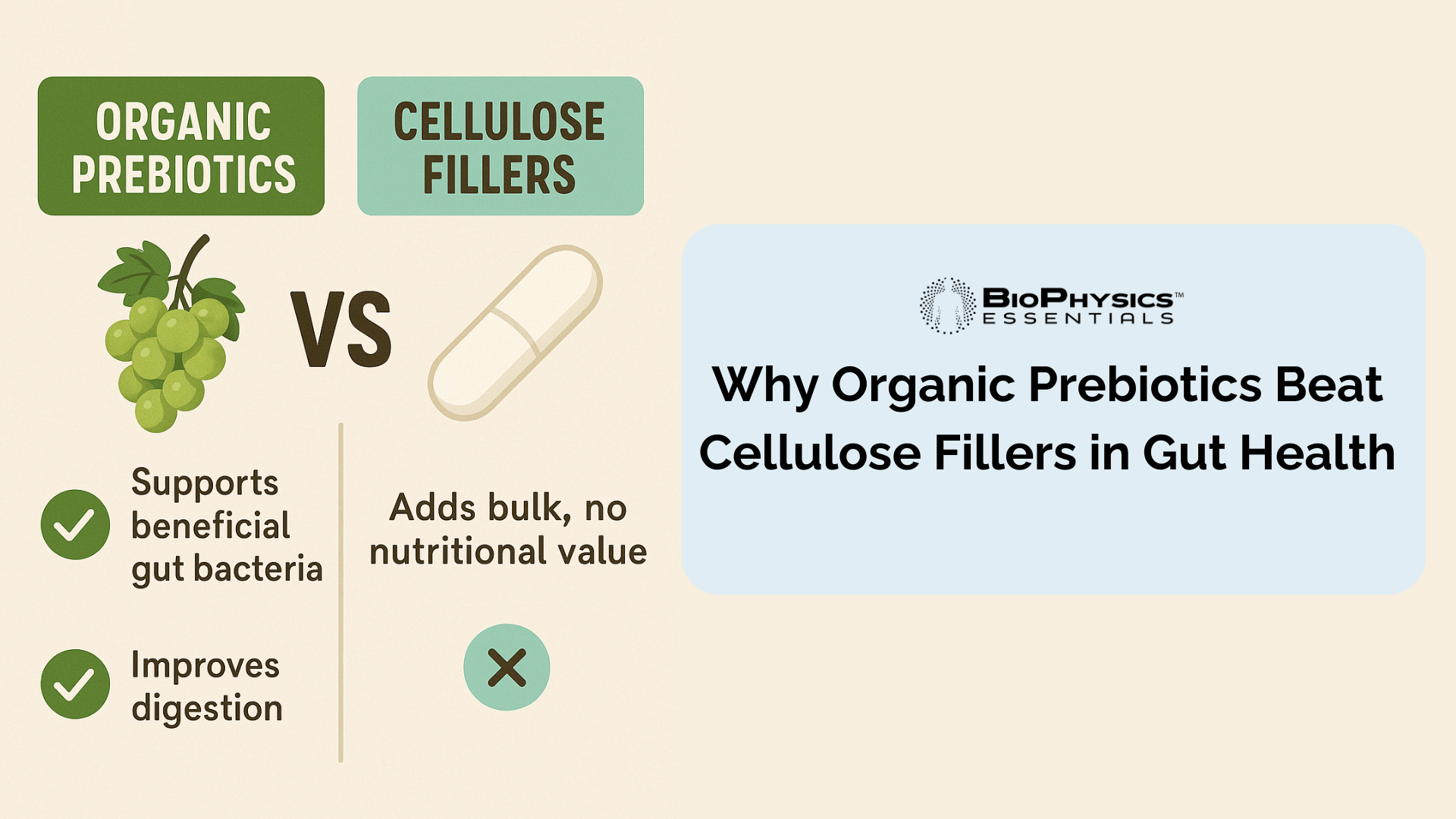
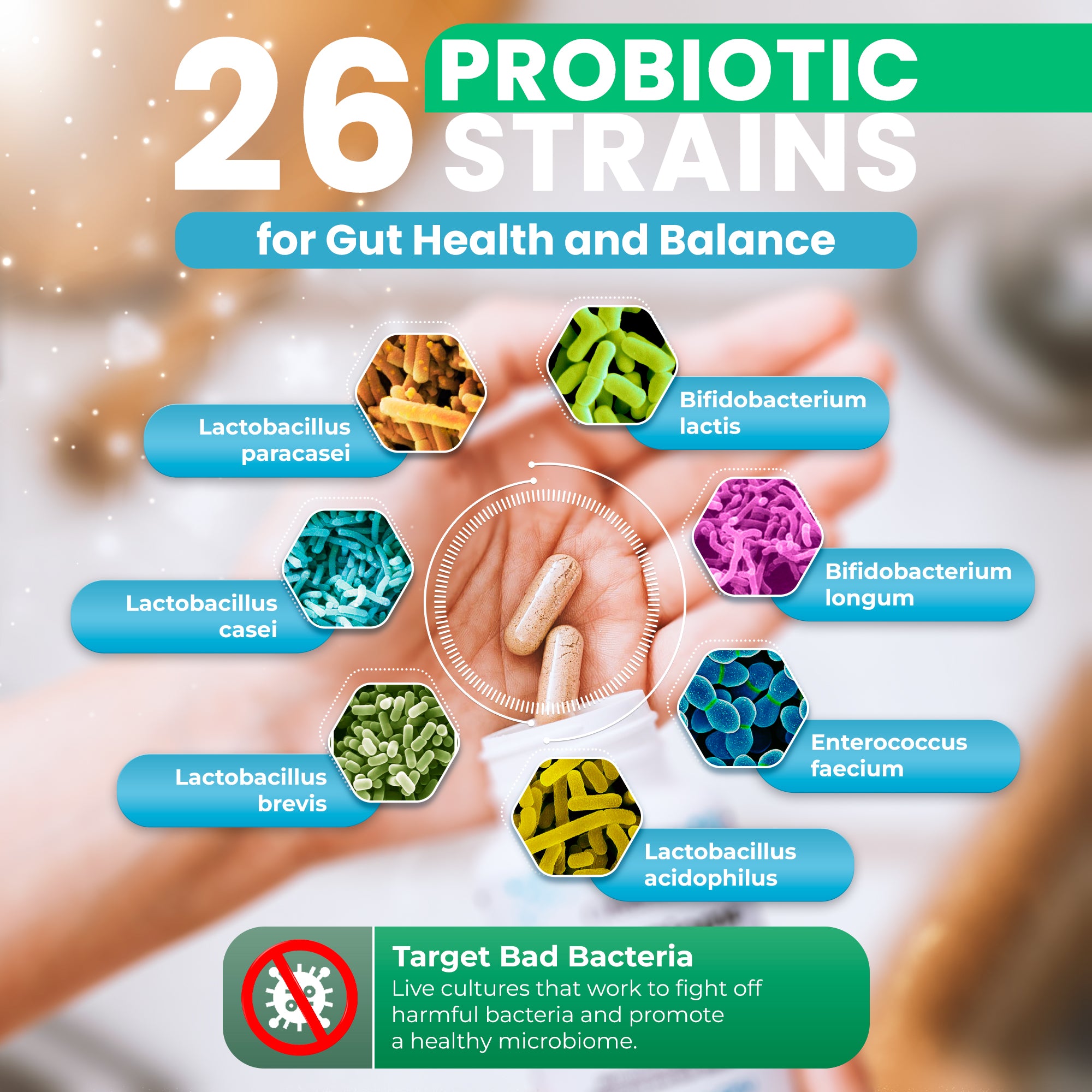
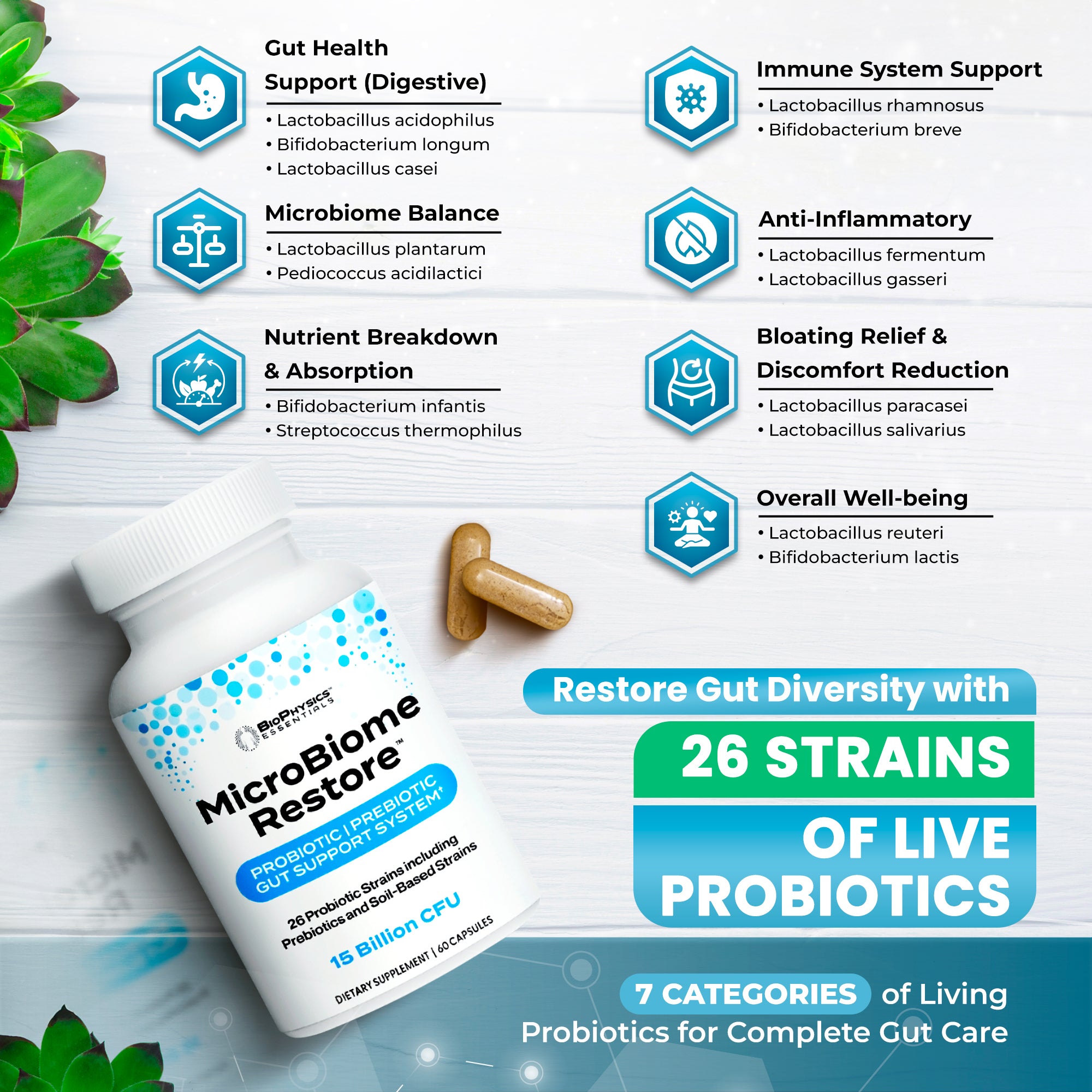
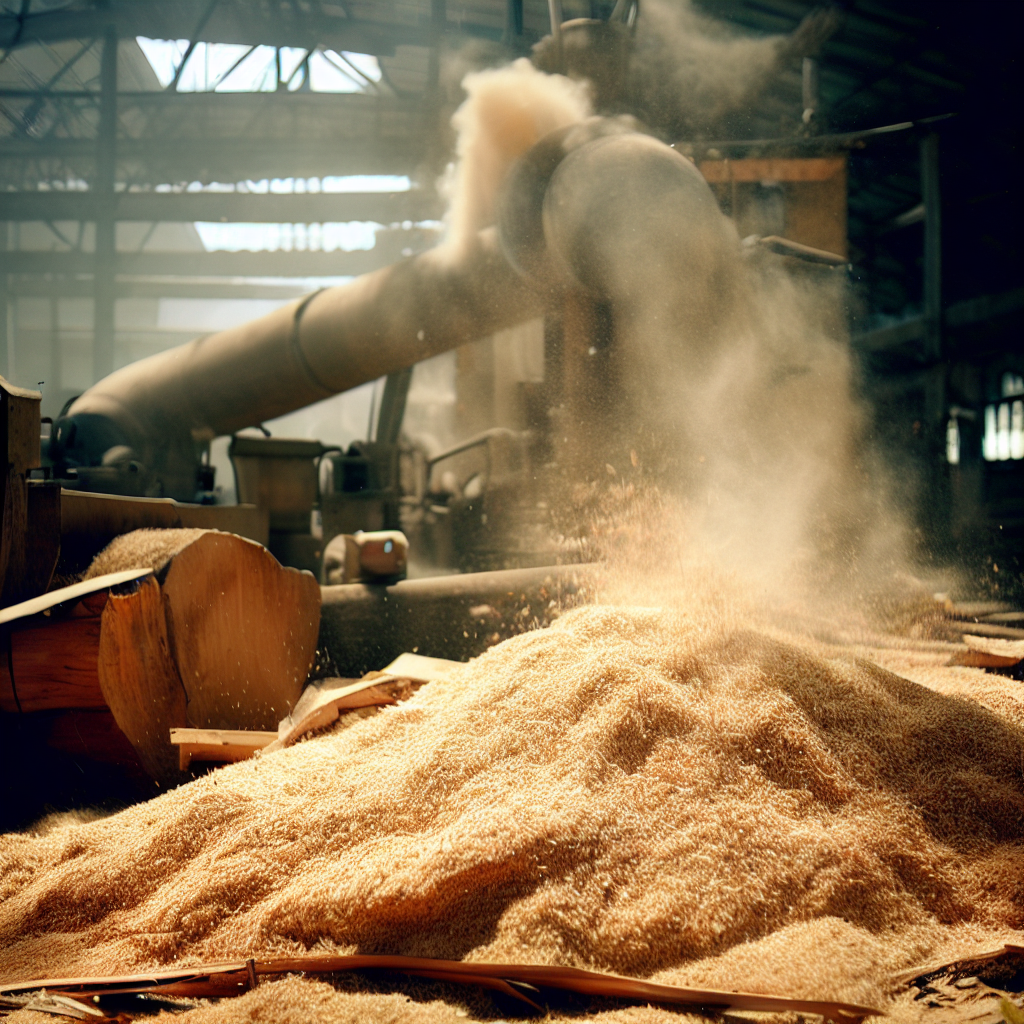
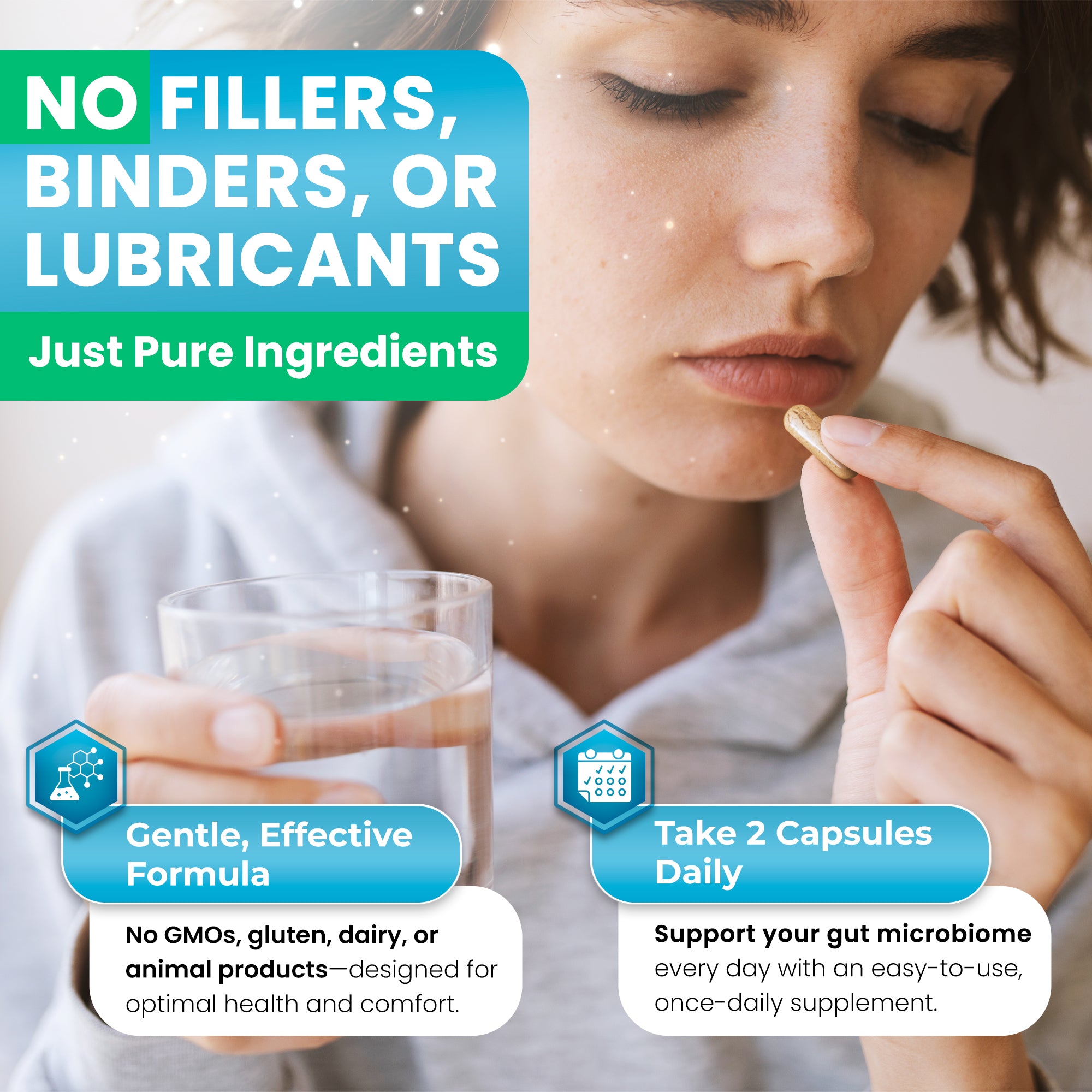
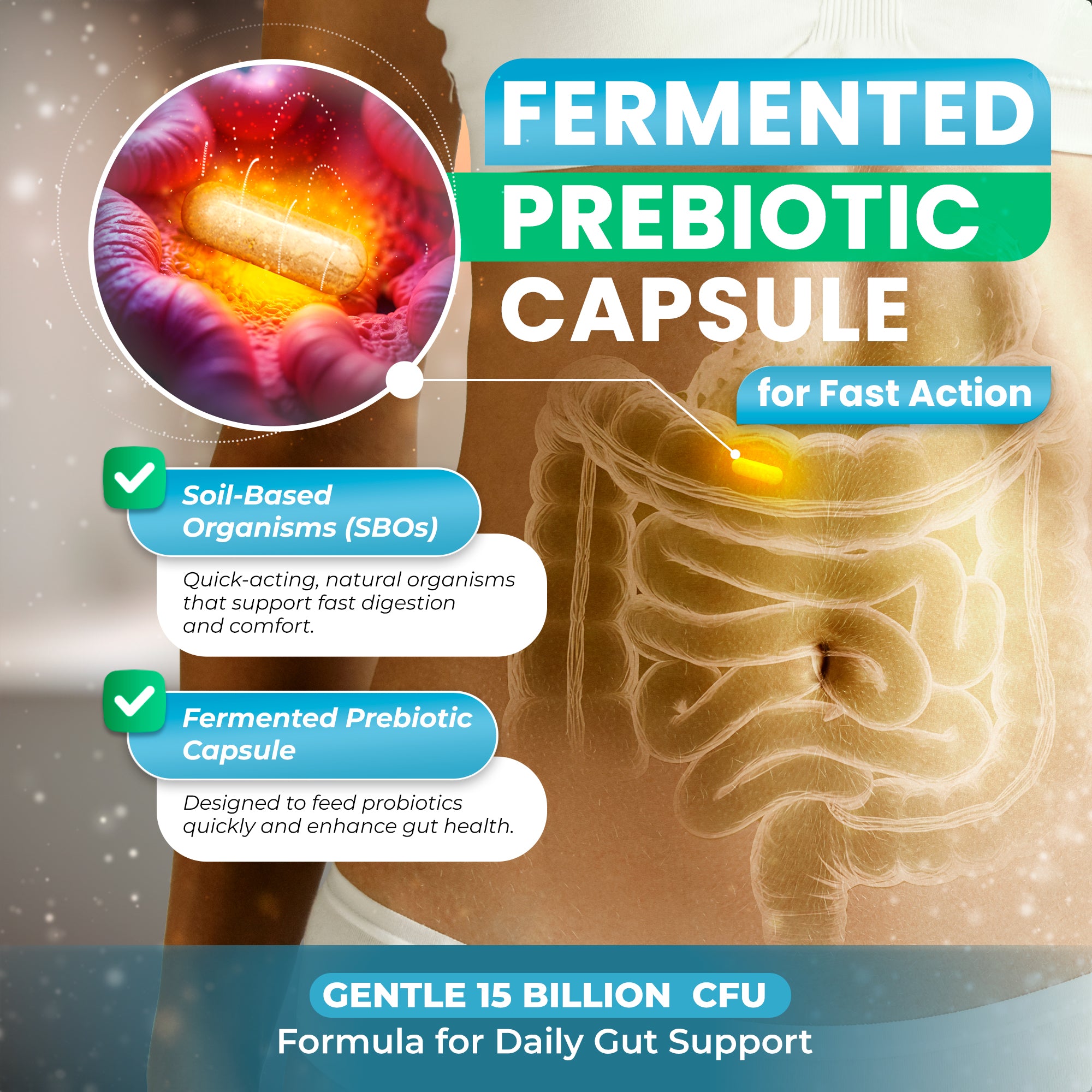






Share and get 15% off!
Simply share this product on one of the following social networks and you will unlock 15% off!